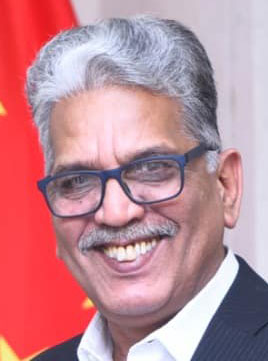China, which was established 74 years ago on October 1, 1949, stands today as a unique identity on the global stage. Since its inception, China has charted a distinct path in international relations, emphasizing a policy of peace. It initiated a new era of diplomatic relations, primarily through its efforts.
China, as a major Asian and global power, plays a pivotal role in promoting peaceful international relations. Its foreign policy is based on five principles, including mutual benefit, non-interference in other countries’ internal affairs, and respect for the sovereignty of nations.
If we assess China’s progress and cooperative projects over the past 74 years, it becomes evident that China has become the world’s most powerful nation not through aggression but through promoting peace. From 1949 to 1978, China primarily focused on internal affairs. However, after 1978, China embarked on long-term development projects.
On October 1, 1949, the Chinese Communist Party, under the leadership of Mao Zedong, laid the foundation for a new China. Mao’s leadership drove China forward tirelessly in the 20th century. His commitment to the Communist revolution led to the establishment of the People’s Republic of China.
Mao’s economic policies significantly boosted China’s industrial and agricultural development. In 1966, China initiated the Cultural Revolution. Subsequent leadership continued to uphold Mao’s great theories and implemented them. In 1978, under the leadership of Deng Xiaoping, China began economic reforms, allowing economic interests to flourish, encouraging private enterprise, and attracting foreign investment.
In 2001, China joined the World Trade Organization, marking a significant milestone in its rapid industrial and business development. Over the past 74 years, China has achieved remarkable progress in various fields, from high-speed railways and modern airports to technological advancements like Huawei and Alibaba.
China’s influence and achievements in the modern world are awe-inspiring. President Xi Jinping has continued Mao’s dreams and, as of 2012, has furthered them. His anti-corruption efforts have been highly successful, and China is now nearly corruption-free.
In 2013, the Belt and Road Initiative was launched to connect China with Europe, Asia, and Africa, exemplifying China’s global vision for peace and development. China’s rise over the past 74 years, marked by its commitment to technological and industrial development through peaceful means, serves as an example for the world.
China is not just a neighbor but also a wise, close friend to Pakistan. China’s progress is a source of joy for the Pakistani people, as it desires peace and prosperity for the world. In contrast, when we assess other major powers, we often see self-interest. China’s intentions are hidden within its commitment to peace.
Mao’s China




